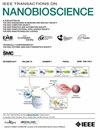探索 DNA 计算在解决复杂大数据问题方面的潜力:旅行租车问题案例研究》。
IF 4.4
4区 生物学
Q1 BIOCHEMICAL RESEARCH METHODS
引用次数: 0
摘要
旅行汽车租赁问题(TCRP)是旅行推销员问题(TSP)的一种变体,其中推销员利用租赁的汽车进行旅行。该问题的主要目标是找出一个能使累计运营成本最小化的解决方案。鉴于该问题被归类为非确定性多项式 (NP) 问题,传统计算机无法有效解决该问题。相反,DNA 计算在面对 NP 难问题时却表现出无与伦比的优势。本文提出了一种基于 Adleman-Lipton 模型的 DNA 算法,作为解决 TCRP 的建议方法。通过一系列基本步骤,包括编码、交互和提取,可以获得 TCRP 的解决方案。对于有 n 个城市和 m 种汽车的 TCRP,所提出的 DNA 算法的时间计算复杂度为 O(n2m)。通过模拟实验,计算出了 TCRP 某些实例的解决方案,并与其他算法的解决方案进行了比较。所提出的算法进一步说明了 DNA 计算作为并行计算的一种形式,在解决更复杂的大规模问题方面的潜力。本文章由计算机程序翻译,如有差异,请以英文原文为准。
Exploring the Potential of DNA Computing for Complex Big Data Problems: A Case Study on the Traveling Car Renter Problem
The traveling car renter problem (TCRP) is a variant of the Traveling Salesman Problem (TSP) wherein the salesman utilizes rented cars for travel. The primary objective of this problem is to identify a solution that minimizes the cumulative operating costs. Given its classification as a non-deterministic polynomial (NP) problem, traditional computers are not proficient in effectively resolving it. Conversely, DNA computing exhibits unparalleled advantages when confronted with NP-hard problems. This paper presents a DNA algorithm, based on the Adleman-Lipton model, as a proposed approach to address TCRP. The solution for TCRP can be acquired by following a series of fundamental steps, including coding, interaction, and extraction. The time computing complexity of the proposed DNA algorithm is
$\boldsymbol {O}(\boldsymbol {n}^{\boldsymbol {2}}\boldsymbol {m})$
for TCRP with n cities and m types of cars. By conducting simulation experiments, the solutions for certain instances of TCRP are computed and compared to those obtained by alternative algorithms. The proposed algorithm further illustrates the potential of DNA computing, as a form of parallel computing, to address more intricate large-scale problems.
求助全文
通过发布文献求助,成功后即可免费获取论文全文。
去求助
来源期刊

IEEE Transactions on NanoBioscience
工程技术-纳米科技
CiteScore
7.00
自引率
5.10%
发文量
197
审稿时长
>12 weeks
期刊介绍:
The IEEE Transactions on NanoBioscience reports on original, innovative and interdisciplinary work on all aspects of molecular systems, cellular systems, and tissues (including molecular electronics). Topics covered in the journal focus on a broad spectrum of aspects, both on foundations and on applications. Specifically, methods and techniques, experimental aspects, design and implementation, instrumentation and laboratory equipment, clinical aspects, hardware and software data acquisition and analysis and computer based modelling are covered (based on traditional or high performance computing - parallel computers or computer networks).
 求助内容:
求助内容: 应助结果提醒方式:
应助结果提醒方式:


